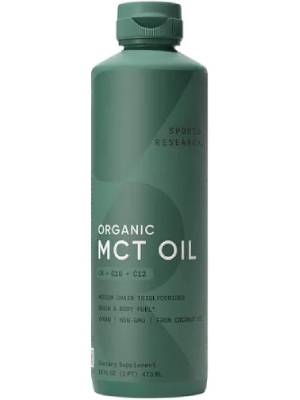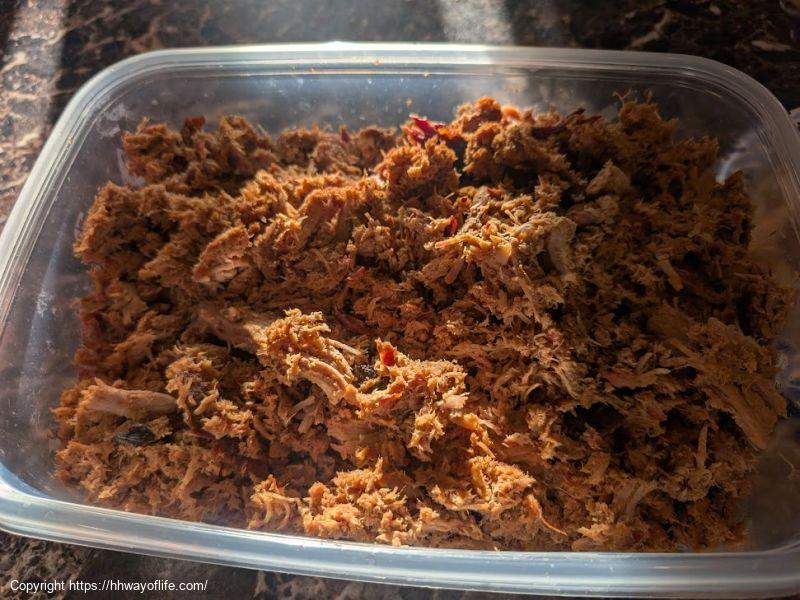Food Nutrition Facts
Nutrition Facts For
MCT Oil - Organic
Portion Size: 1 Tablespoon
| Nutrient | Value | % Daily Value* |
|---|---|---|
| 130.0 kcal | 7% | |
| 14.0 g | 2% | |
| 14.0 g | 1% | |
| 0.0 mg | 0% | |
| 0 mg | 0% | |
| 0.0 mg | 0% | |
| 0.0 g | ||
| 0.0 g | ||
| 0.0 g | ||
| 0.0 g | ||
| 0.0 g | ||
| Vitamin |
*Daily value based on a 2,000 calorie diet. Your daily values may be higher or lower depending on your calorie needs and health goals.
Calculate your daily calorie needs here
Nutrition Facts For 1 Tablespoon of MCT Oil - Organic

MCT oil, short for Medium-Chain Triglyceride oil, is a dietary supplement made from specific types of saturated fatty acids called medium-chain triglycerides. These fats are naturally found in foods like coconut oil, palm kernel oil, and dairy products. However, MCT oil concentrates these beneficial fats, making it a potent source.
Here's a breakdown of its key characteristics and benefits:
What are Medium-Chain Triglycerides (MCTs)?
- MCTs are a type of saturated fat with a shorter carbon chain length than most other dietary fats (long-chain triglycerides or LCTs).
- This shorter chain length allows MCTs to be digested and absorbed more quickly and easily by the body.
- The primary MCTs found in MCT oil are caprylic acid (C8) and capric acid (C10). Some oils may also contain caproic acid (C6) and lauric acid (C12), though C12 is sometimes classified as an LCT due to its longer chain.
Key Characteristics of MCT Oil:
- Liquid at room temperature: Similar to other oils.
- Colorless and odorless: It typically has a neutral taste, making it easy to add to foods and drinks.
- Rapidly metabolized: The body can quickly convert MCTs into energy, making them a readily available fuel source.
- Not stored as easily as fat: Due to their rapid metabolism, MCTs are less likely to be stored as body fat compared to LCTs.
Potential Health Benefits:
- Weight Management: MCTs may promote feelings of fullness, potentially reducing overall calorie intake. Some studies suggest they can also increase calorie and fat burning.
- Increased Energy Levels: The quick conversion to energy can provide a rapid energy boost.
- Improved Cognitive Function: MCTs can be converted into ketones, which can be used as an alternative fuel source for the brain. Some research suggests this may benefit cognitive function, particularly in conditions like Alzheimer's disease.
- Reduced Lactate Buildup During Exercise: Some studies suggest MCTs may help athletes utilize fat for energy, potentially reducing lactate buildup and improving endurance.
- Potential Gut Health Benefits: MCTs may have antimicrobial properties that could support a healthy gut microbiome.
- Improved Insulin Sensitivity: Some research indicates MCTs may help improve insulin sensitivity, which is beneficial for blood sugar control.
Common Uses of MCT Oil:
- Adding to smoothies and shakes: A popular way to incorporate MCT oil for an energy boost.
- Mixing into coffee or tea: Often used in ketogenic diets to increase fat intake.
- Drizzling over salads or cooked vegetables: A simple way to add healthy fats to meals.
- Using in salad dressings: Can be incorporated into homemade dressings.
- Baking: Some recipes use MCT oil as a fat source.







